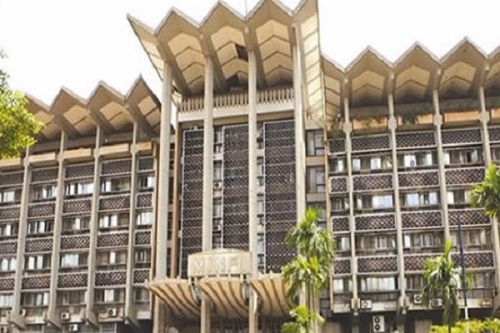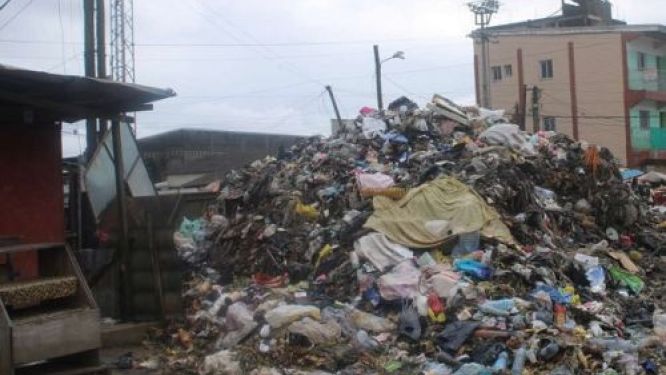Towards reducing the overall budget deficit from 3.2% of GDP in 2021 to 2% in 2022, the government intends to enhance the mobilization of non-oil domestic revenues, while focusing on controlling and improving the efficiency of public expenditures. This was revealed by Minister of Finance (Minfi), Louis Paul Motaze, while presenting the main points of the 2022 draft budget during the special ministerial council held on November 8, 2021.
To achieve such budget deficit reduction ambition, the government plans to increase the percentage of domestic non-oil resources in GDP from 11.3% in 2021 to 12.1% in 2022. This percentage represents a tax effort of 0.8% of GDP, we learn.
According to the Minfi, the non-oil revenues mobilization target will be met by introducing new taxes but also by cancelling some of the temporary exemptions decreed in the 2020 fiscal year, to mitigate the impacts of the coronavirus pandemic on the national economy.
Also, to reduce the budget deficit, the country will rationalize expenditures through continuous application of the zero-based budget approach strategy, which entails preventing the growth of operating expenditures (salaries excluded) and dedicating the available budget to priority challenges.
With the budget deficit target set to 2% of GDP, the government will reduce its expenditures (excluding debt service) to 15.3% of GDP in 2022, slightly down from 15.6% of GDP in 2021. This represents a reduction by XAF79.6 billion of public expenditures between the two periods.
Let’s note that the budget consolidation initiatives introduced by Cameroon are aimed at ensuring the medium and long-term sustainability of public finances and guaranteeing a successful implementation of its 2020-2030 national development strategy (SND30), the reference framework for public actions over the period.
The new tax and customs measures suggested are namely:
- Customs duties and taxes exemptions for greenhouses intended for agriculture, improved plant and animal seeds, vaccines, and veterinary medicines to optimize agricultural ad livestock supplies.
- Customs duties and taxes exemption for the importation of equipment, materials, and tools (that are not available locally) used for further wood processing.
- Application of ad valorem excise duty on some imported goods when local supply is sufficient to meet demand or when there are negative externalities. The products concerned include ea, coffee, edible fruits, pepper, chili, pork, beef, and goat meat.
- Increasing the export duties on raw timber from 35% to 50% to encourage local processing and reduce deforestation.
- The elaboration of a mechanism to offset debt instruments resulting from financial sentences imposed by the State or agreements approved by fiscal authorities with the concerned taxpayer’s taxes, duties, and fees;
- The alignment of imported vehicles and equipment’s valuation methods with commercial practices and CEMAC community regulations, with a view to strengthening predictability for users and harmonizing vehicles and equipment’s custom value calculation baselines;
- Clarification of bank guarantee principles for customs transactions;
- Customs and duties exemption for the importation of medical equipment and materials required to improve the national healthcare offers and technical equipment while reducing the number of medical evacuations;
- The introduction of a tax on money transfers at the rate of 0.2% for remittances and 0.1% for withdrawals, with the exception of bank transfers and tax payment transfers;
- Confirmation of the special income tax of 3% on commissions paid to money transfer companies located abroad, in order to simplify their tax obligations;
- The reduction, from 5 to 3%, of the special income tax levied on payments to public contractors domiciled abroad to optimize the costs of structuring projects implemented thanks to external funds;
- The reduction, from 15 to 5%, of registration fees on large-scale company sales to reduce the cost of company restructuring;
- The simplification of land incomes taxation modalities with the introduction of a fixed tax of 10% on rents collected from non-professional tenants;
- Inscription of the special income tax exemption provided by the petroleum code for oil companies still in the research and development phase into the general tax code with the view to harmonizing the legislation;
- The reinforcement of the scope of the tax clearance certificate as an instrument promoting fiscal compliance by making it a requirement before accessing the services of court officers (lawyers, bailiffs, notaries, etc.) in legal proceedings;
- The introduction of a symbolic penalty of 15% for taxpayers who quickly pay the taxes imposed on them after a tax audit to improve the collection and reduce tax arrears.
D.M.














